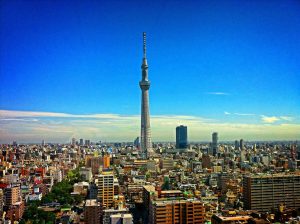On July 4, Japan’s Tokyo Metropolitan Assembly election took place. Even though the ruling Liberal Democratic Party (LDP) won the biggest number of seats – 33 out of 127 seats – and Komeito retained 23 seats, the LDP-Komeito ruling coalition fell short of winning the majority in the Tokyo Metropolitan Assembly.
As the biggest local assembly in Japan, with a total annual budget of over 15 trillion yen (approximately $135 billion) when everything is counted, the result of Tokyo Metropolitan Assembly election has often been seen as a prelude to the next national election. Given that the House of Representatives (the lower house of the Japanese Diet) will be holding an election by early September at the latest, the ruling coalition’s failure to win a majority in Tokyo’s legislature has begun to stir up the question of whether Prime Minister Suga Yoshihide is the right “face for the election” for the LDP in the upcoming poll.
The ruling coalition’s failure to win the majority in the Tokyo Metropolitan Assembly is attributed to two main factors: the central government’s handling of the COVID-19 vaccine rollout and the government’s decision to move forward with the Summer Olympic and Paralympic Games despite rising public concern about the virus’ spread, particularly given the recent rise in cases of the Delta variant. In both cases, the government’s lack of transparency in decision-making or clear and decisive messaging on their decisions aggravated public dissatisfaction.
When looking more closely into the election results, however, a more complex picture emerges. Even though the LDP-Komeito ruling coalition failed to capture the majority, the LDP alone managed to win more seats than Tomin First no Kai (Tokyoites First), the party that backs the incumbent Governor Koike Yuriko. Tomin First took just 31 seats, losing 15 compared to its previous position. This means that the LDP-Komeito coalition continues to hold considerable veto power in the Tokyo Metropolitan Assembly, which Koike now has to take into consideration. In short, even though the election results from last weekend may be a loss for the national ruling coalition, its impact may not be as bad as has been discussed.
Furthermore, the way that other parties improved their election results at the Metropolitan Assembly level will not necessarily translate to a national election. For instance, the Constitutional Democratic Party of Japan (CDPJ, formerly the Democratic Party of Japan), trying to position itself as the alternative for voters in a future national election, increased its seats in the Tokyo Metropolitan Assembly by de-conflicting its candidates with the Japan Communist Party (JCP). Even though such electoral cooperation with the JCP may be effective at the local level, an association with the JCP is a “road to nowhere” at the national level. The vast majority of voters, including unaffiliated voters who prefer to see more middle-of-the-road policies, see an electoral pact with the JCP as proof of the CDPJ’s supposed anachronism and lack of governing ability.
That said, the results of last weekend’s Tokyo Metropolitan Assembly election, together with the ruling coalition’s losses in all three national-level supplemental and emergency elections, did pose a serious question about Suga’s ability to lead the ruling party. As such, the weakening of Suga’s grip on the LDP-Komeito ruling coalition is inevitable, creating an opening for more dissenting voices coming out of the LDP. However, in the absence of any heir-apparent emerging in the LDP, it is highly uncertain whether Suga’s successor — should someone emerge to replace him before the lower house election — will be any stronger than Suga.
If anything, the result of Tokyo Metropolitan Assembly election illustrated one thing clearly: Japan has entered a period of leadership vacuum. But with the country still muddling its way out of the impact of COVID-19 and with the Summer Olympic and Paralympic Games approaching, it is a vacuum that Japan cannot afford.













